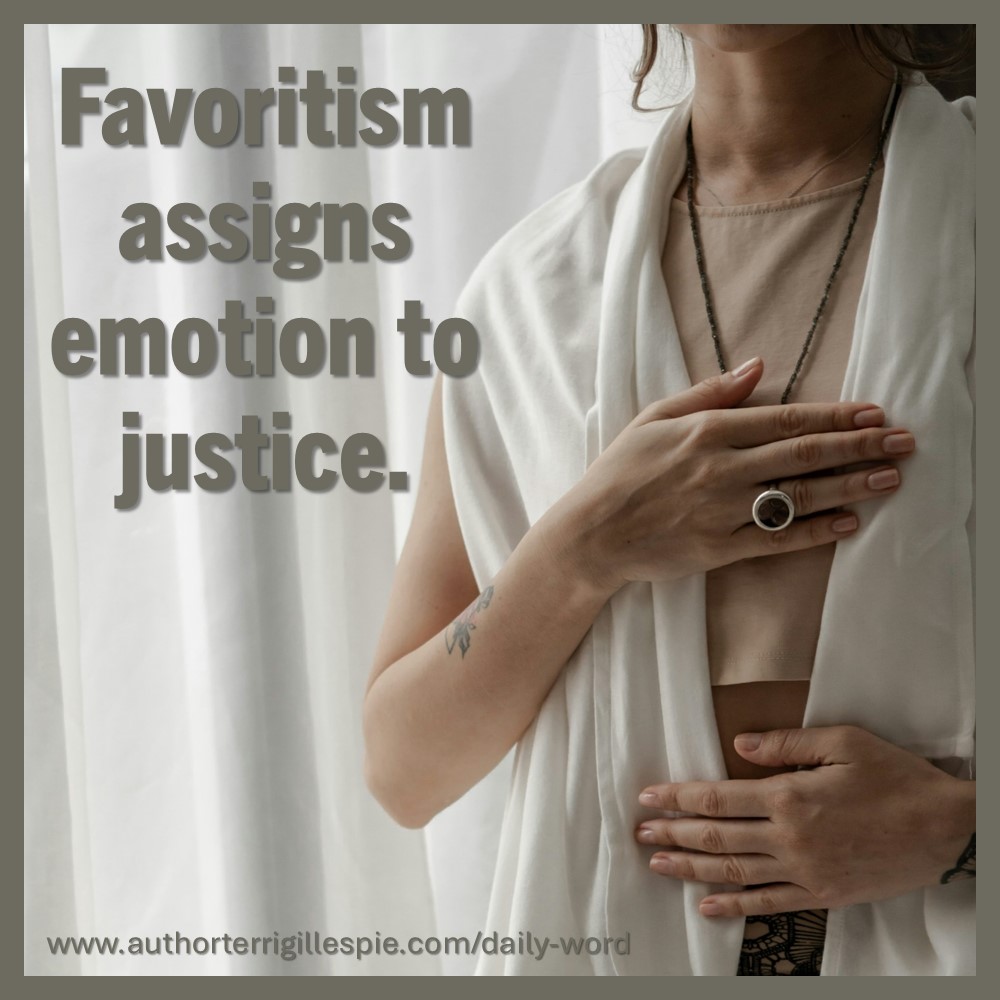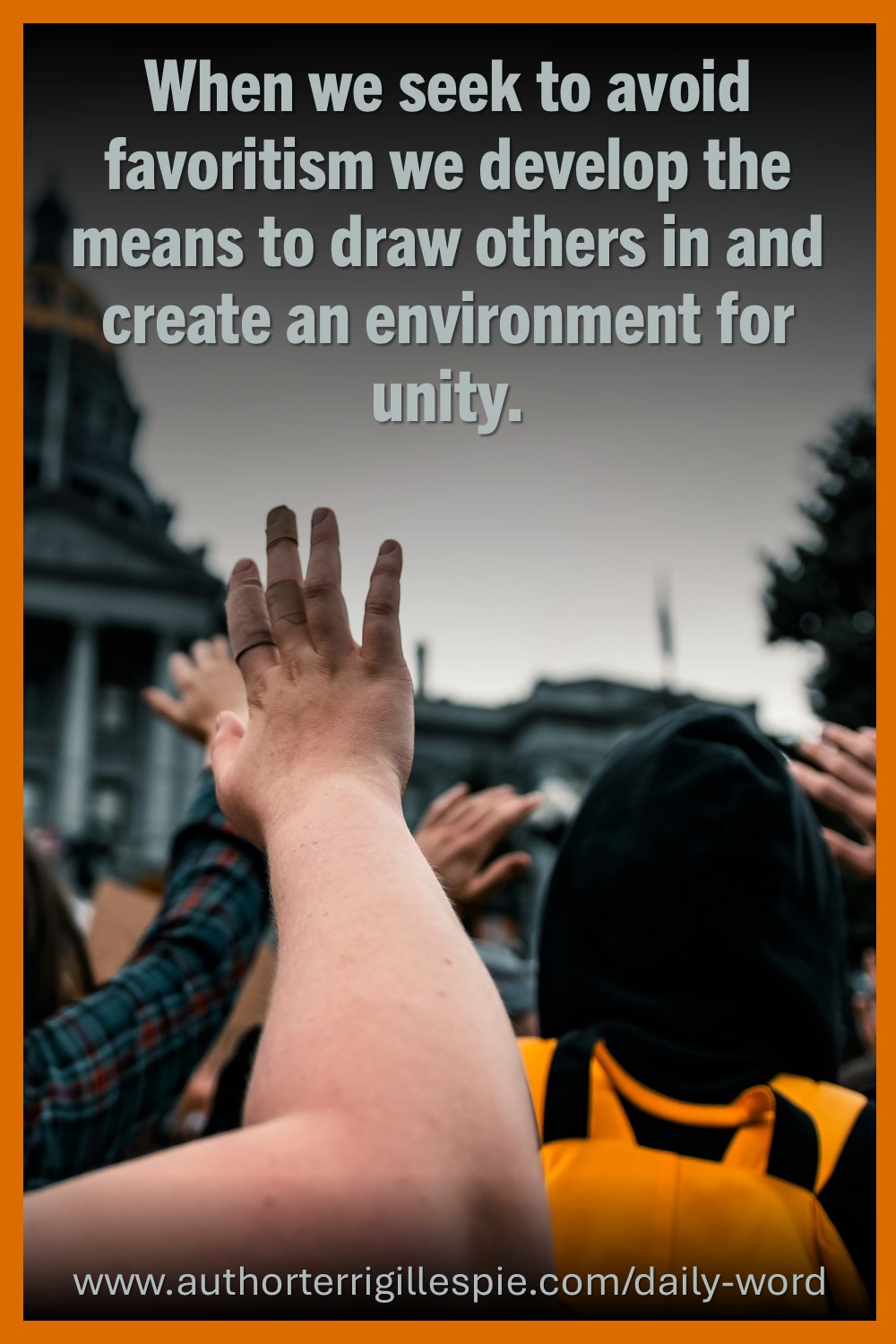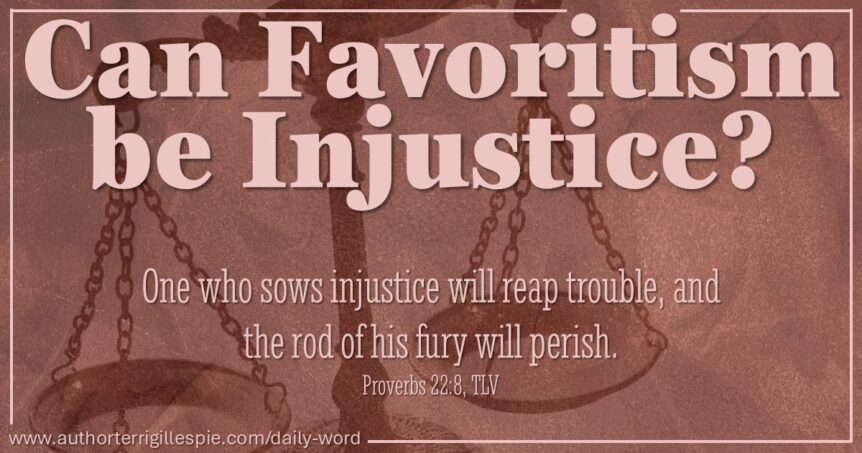One who sows injustice will reap trouble, and the rod of his fury will perish. Proverbs 22:8, TLV
 Can Favoritism be Injustice? There are many types of injustice. Systemic sin — like prejudice against a race or faith — by a government creates injustice and affects nations. It’s easy to think that we aren’t guilty of that — few of us make decisions that affect even our hometown.
Can Favoritism be Injustice? There are many types of injustice. Systemic sin — like prejudice against a race or faith — by a government creates injustice and affects nations. It’s easy to think that we aren’t guilty of that — few of us make decisions that affect even our hometown.
However, if we dig down to the root of injustice, we find that one of the lowest common denominators is favoritism. Favoritism is different than favor, although left unchecked favor can develop into it. Favoritism happens when we select a favorite. Once we choose someone as our favorite, our attitude and perception changes.
Jacob chose a favorite from his children — Joseph. His preferential treatment created dissension between the brothers and eventually hatred. Joseph’s brothers felt they were unfairly treated by their father and there was nothing they could do. Which created frustration and anger.
As you can see this smaller scale injustice destabilizes families, businesses, congregations, and friendships.
Favoritism assigns emotion to justice. What can happen is when we are in good standing with a “favorite one,” we’ll do all sorts of favors. But, when we’re angry with that person, we can withdraw the favor, and sometimes exact undue penalties.
we are in good standing with a “favorite one,” we’ll do all sorts of favors. But, when we’re angry with that person, we can withdraw the favor, and sometimes exact undue penalties.
True justice has no emotion. It’s based on the facts and truth.
Compassion and Mercy
Compassion and mercy are not favoritism. When we must exact justice for someone who does wrong, there is always the option for mercy. But compassion and mercy should be based on a thoughtful, prayerful, purposeful search for the right answer to a difficult situation.
What about God’s favor? A common saying in the believers’ world is to say things like: I have God’s favor; or God gave me favor; or please, pray for favor. Is this the same as favoritism? No. All our Heavenly Father’s children are His favorites. When He gives favor, it is part of a greater plan — it’s not random or a reward. It’s part of His overall character to bless us.
Avoiding Favoritism
How do we avoid favoritism? Especially within families, businesses, and congregations?
Here are a couple of ways we can avoid favoritism:
- See the individual and their worth. That means getting to know the person. When we appreciate each person’s unique personality and gifts, we can relate better with them and we’re less likely to show partiality.
- Stay neutral. When those we love or supervise are in conflict with others we may not know as well, try to remain neutral. Always seek to unite, not take sides. Who knows, the person we don’t know today can be a wonderful friend or employee in the future.
- Encourage relationships with others. When new people enter our circle of relationships, it’s sometimes difficult to widen our circle to include them. Some may feel insecure. It takes time and patience. Try to create opportunities to build new relationships.
 When we seek to avoid favoritism we develop the means to draw others in and create an environment for unity. Unity is our Messiah’s passion (John 17). Let’s sow unity, and justice will follow. And that’s a good thing.
When we seek to avoid favoritism we develop the means to draw others in and create an environment for unity. Unity is our Messiah’s passion (John 17). Let’s sow unity, and justice will follow. And that’s a good thing.
Think More About It?
What are ways you have learned to avoid favoritism?
Until tomorrow, may we sow unity and justice, my friends.
For ADONAI [the LORD} is righteous—He loves justice.
The upright will see His face. Psalm 11:7, TLV
Our Father loves justice. So, why is there such injustice in the world? He loves justice, unfortunately, not all of humanity has the same passion. Before we criticize those “people” let us seek our Father’s face to be sure we are not showing favoritism over what is right. An important prayer. Yes? God bless you!



